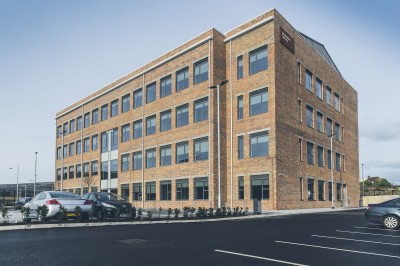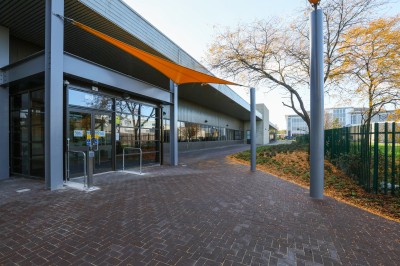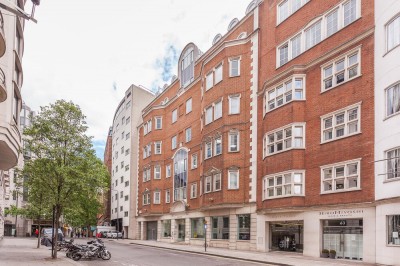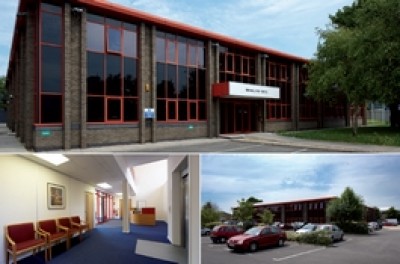Liverpool enjoys a reputation as an economic powerhouse in the north-west of England. With one of the largest economies in the country, it’s no wonder that the city has become a thriving business hub attracting a wide range of financial, technological, banking, insurance and education institutions. Renting office space in Liverpool is an affordable way to locate your business in one of the top cities in England.
Compared to renting serviced offices and co-working space in other cities, Liverpool has much to offer with cheaper office spaces than other large cities like London, Manchester and Leeds.
For businesses operating in the area, there are excellent transport links to stay connected. There is a world-famous port, international airport and rail services with direct links to cities across England. Additionally, it is home to world-class hotels, restaurants and entertainment venues.
The importance of Liverpool in today’s economy has significantly increased the demand for office space here.
History
Liverpool was one of the most important cities in the industrial revolution. The city was home to a large number of immigrants from all over Europe in the 19th century. Due to its port, it became the leading city in the world for cotton. There were also strong trade links with India and the Far East. In time, the port became the most important one in the British Empire.
It also has a rich cultural history which continues today. The city is home to numerous museums—the most in the UK outside of London—that celebrate the visual arts. Of course, it’s impossible to talk about the music scene there without mentioning the Beatles and Merseybeat. Thanks to its rich cultural heritage, tourism is now a significant contributor to the city’s economy.
Economy
Liverpool’s economy is experiencing strong growth thanks to sectors such as shipping, automotive manufacturing, marine engineering, health services and digital industries. Before the global pandemic of 2020 and 2021, Liverpool averaged £1 billion a year in regeneration investment. Despite the downturn caused by the pandemic, regeneration projects continue to breathe life into the city’s economy.
The investment in Liverpool’s economy makes it one of the UK’s most promising cities for economic growth. Compared to other large cities in the north-west of England, Liverpool experiences one of the fastest economic growth rates. In 2017, the cities GVA was 3.3%, making it one of the top cities in the UK for growth.
The demand for flexible office space in Liverpool looks set to continue as the country emerges from lockdown. For example, in 2021, there was a 10.23% increase in office space rentals in the Health & Life Sciences sector. Additionally, the government’s Department of Work and Pensions relocated to a 20,020 sq ft premises in the city.
Demand continues to grow in the private and professional sectors for high-quality rented office space. Businesses in industries such as IT and creative media are active in renting new workspaces.
Regeneration in Liverpool ensures that the city becomes a vital player in a post-COVID and post-Brexit Britain. Investment will create an additional 2 million sq ft of office space in the commercial district. A £1.4 billion investment plan will help to create over 25,000 new jobs in the city. This regeneration will target areas such as employment, housing, innovation and creativity.
Which Businesses Operate in Which Areas of Liverpool?
Liverpool is home to businesses from a wide range of sectors. The fact that rented office space is significantly lower than London and Manchester makes it a magnet for start-ups, large corporations and government sectors. Large companies such as Unilever, Typhoo tea, Princes Food, QVC, the NHS and Home Bargains have headquarters or extensive facilities in Liverpool.
Here is an overview of the primary business districts in the city.
Liverpool Knowledge Quarter
The Knowledge Quarter is in the city centre and includes the Liverpool Science Park and various biotechnology businesses. Here you will find companies and institutions such as Unilever, the University of Liverpool and the Royal College of Physicians.
Paddington Village is a £1 billion investment project to develop a 30-acre urban village with offices, housing, restaurants, hotels and shops. The types of companies moving to Paddington Village are in the education, technology, science, and health sectors.
Liverpool’s Business Improvement District (BID)
The commercial centre of Liverpool is in the city’s BID, close to the waterfront. This area is home to spectacular historical buildings like the Town Hall and the Liver Building. These are found beside the futuristic West Tower. Businesses in the leisure, hospitality and retail sectors have offices and establishments here.
Liverpool Port
Liverpool is a global freight and logistics hub. Liverpool Port is also part of the BID, and businesses in the port area enjoy all its benefits. Along the waterfront and docks area are the headquarters of many major global shipping lines. You will also find well-known finance-related companies such as Coutts & Co, PricewaterhouseCoopers (PWC) and KMPG.
Many transport and logistic companies locate to the Liverpool Port area. Apart from fantastic views of the Mersey and excellent rented office space, the proximity to the port makes it easy to travel to Ireland or handle international logistic operations.
Expansion of the port to create Liverpool2 has significantly increased freight capacity. Now, container ships carrying 13,500 containers can dock here, a significant increase from the previous limit of 3,500.
Liverpool Commercial District
The Commercial District in Liverpool is the financial heart of the city and benefits from being located in the BID. The buildings are some of the tallest in the north-west and create a spectacular skyline. Office buildings like West Tower, Beetham Tower and New Hall Place have some of the best office spaces—not to mention views—in the city.
In Liverpool’s commercial district, you’ll find companies such as Maersk Line, Unisys, BT and the HM Passport Office. Additionally, banking and insurance businesses have a significant presence in the district.
Liverpool Rental Guide
The typical cost of renting flexible office space in Liverpool varies from £220 - £250 per person per month. However, the cost depends on office type, location and the included amenities.
Below is a breakdown of the average cost of renting a flexible working space in Liverpool*:
|
Hot Desk |
£50 - £125 |
|
Fixed Desk |
£100 - £200 |
|
Private Office |
£110 - £350 |
*Guide prices per person per month, excl. vat.
What Business Amenities Are There in Liverpool?
Businesses that choose Liverpool for their operation hub benefit from a wide range of amenities in the city.
The city centre and waterfront areas have luxurious hotels in historic buildings like the Shankly Hotel, Central Station Hotel and Adelphi. There are also well-known chains such as Marriott and Hilton or more budget-friendly places like Travelodge and Premier Inn.
Businesses in Liverpool also enjoy excellent conference facilities. There are ample facilities at the Royal Liver Building and University of Liverpool. In addition, there are conference facilities on the waterfront like The Boardroom or the Stylish Conference Centre located in the Knowledge Quarter.
As you would expect from a city with a rich culture, there is a wide choice of restaurants, bars and cafes throughout the city.
Liverpool Transport Links
Liverpool is well-connected to international destinations and major UK cities by the John Lennon Airport, rail network, motorways and ferries. Also, there is an excellent public transport system to get around the city.
Liverpool’s airport is 9 miles outside the city centre and has flights to Europe and most airports in the UK.
Due to the city’s importance as an international port, there are excellent road connections. The M62 connects to Manchester—an hour’s drive away—Leeds, Bradford and Hull. You can also quickly get to the M1 and M6 to travel south to Birmingham and London or head north.
There is also an extensive rail network to get to commuter towns in the Merseyside area and beyond. The main rail station—Liverpool Lime Street—connects to Manchester, Leeds and London. It is also planned that the high-speed HS2 line will connect to Liverpool via the Northern Powerhouse Rail project.
From Liverpool Port, there are daily ferries to Belfast and Dublin.
Offices to Rent in Liverpool
Whether you’re an individual, start-up business, SME or large organisation, here at Prime Office Search we can help you in your search for serviced offices, coworking space, virtua offices or managed office space in Liverpool. Our team of experienced consultants will work closely with you, to find your ideal office solution.
Get in touch with the Prime Office Search team today who can help you find the best serviced office space for your business. Alternatively, you can browse our available office spaces in Liverpool online.







